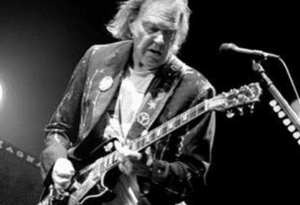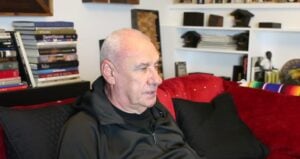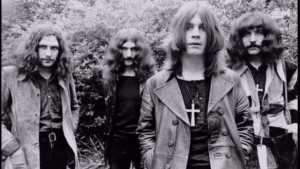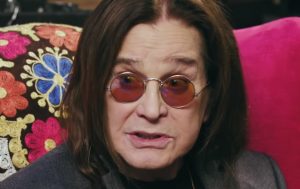Rockstars Who Hated Fame
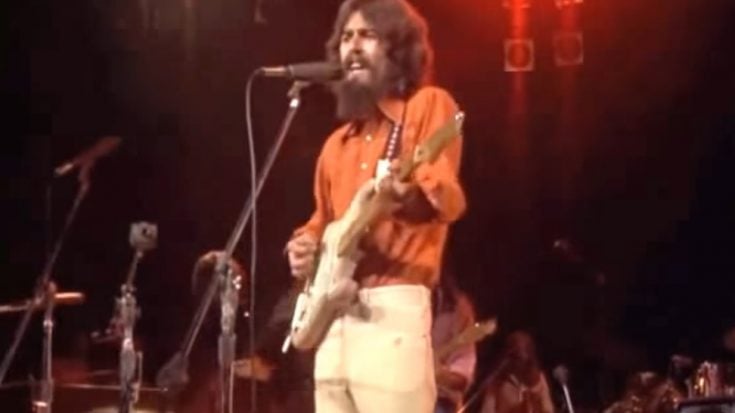
George Harrison live in 1971 - Afif Luthfi Waliyullah / Youtube
Fame and adoration may seem like a dream come true for aspiring rock stars, but for some, it turned into a haunting nightmare they couldn’t escape. The glitz and glamour of being in the spotlight brought its fair share of challenges, leaving these artists struggling to find solace away from the public eye. Let’s delve into the lives of rockstars like Kurt Cobain, Eddie Vedder, Neil Peart, Gregg Alexander, Syd Barrett, Mark Knopfler, John Frusciante, Thom Yorke, and George Harrison, who despised the fame they achieved and found themselves at odds with the world they once aspired to conquer.
1. Kurt Cobain: Trapped in the Media Circus
Kurt Cobain, the enigmatic frontman of Nirvana, initially embraced fame but quickly became disenchanted with its darker side. Despite seeking recognition from major record labels, Cobain found himself entangled in a web of media scrutiny and relentless judgment. His final album “In Utero” reflected his struggle with fame, expressing disdain for the press’s harsh attitude. Cobain’s introverted nature clashed with the hero-worship he received, leading him to resent the attention and constant public demands. He spoke candidly about being hassled in public, saying, “I’ve been confronted by people wanting to beat me up … because they think I’m this pissy rock star bastard who can’t come to grips with his fame.”
2. Lorde: A Teenager Thrust into Superstardom
Lorde’s rise to fame at just 16 years old brought her both admiration and body-shaming trolls. The young singer found herself facing cruel and unwarranted comments about her appearance, feeling the weight of public scrutiny on her shoulders. Uncomfortable with the PR and fakery that came with celebrity status, Lorde yearned for privacy and genuine artistic expression. She expressed her relief as the peak of Lorde-mania waned, emphasizing that true success does not solely rely on fame but on creating meaningful work.
3. Amy Winehouse: Hounded by the Press
Amy Winehouse, with her captivating voice and soulful lyrics, garnered immense fame. However, fame came with a heavy price for Winehouse. She never sought fame and fortune, desiring a quieter life and a family. The media’s constant intrusion into her personal life fueled her resentment towards fame. Struggling with addiction and mental health issues, Winehouse found herself trapped in a web of media attention that worsened her challenges. She likened fame to “terminal cancer” and felt it was a destructive force in her life.
4. Eddie Vedder: Reluctance in the Spotlight
Pearl Jam’s Eddie Vedder, like Kurt Cobain, had mixed feelings about fame. Initially, Vedder felt uneasy with the band’s rapid rise to fame after releasing their second album. He withdrew from the public eye, refusing interviews and shying away from publicity. Despite the encouragement from handlers to embrace the limelight, Vedder preferred focusing on making music rather than being a celebrity. Even decades later, he remains reluctant to engage with the press and has expressed his disdain for excessive fame, saying, “I don’t want to be a star.”
5. Neil Peart: Battling the Hype of Rock ‘n’ Roll
Neil Peart, the legendary drummer of Rush, was a soulful and private individual. He never sought fame and considered it a destructive force for both the artist and the public. For Peart, being a rock star didn’t mean being an entertainer; it meant delivering a good performance. He found fame overwhelming and rejected the notion that celebrities should be held to higher moral standards off-stage. To him, fame was a burden that took away from his true passion—making music.
6. Gregg Alexander: Shying Away from Superstardom
Gregg Alexander, the peddler of feel-good tunes, experienced huge success with the New Radicals hit “You Get What You Give” in the 1990s. Despite this success, Alexander had no desire for fame and quit the band shortly after. He preferred anonymity and turned to charity work, giving his first interview after 15 years in 2014. Alexander deeply disliked the commercialization of music and the pressures of fame, choosing songwriting as his true passion.
7. Syd Barrett: Escaping the Spotlight Amid Mental Illness
Roger “Syd” Barrett, a founding member of “Pink Floyd,” retreated from fame due to a serious mental illness—schizophrenia. He struggled to cope with the unwanted attention and began to exhibit paranoid behaviors. Attractiveness and popularity among fans only added to his discomfort, and Barrett soon became reclusive, disappearing from public life entirely. Rumored to have taken up painting in private, he found solace away from the noise of fame.
8. Mark Knopfler: Breaking Away from Superstardom
Mark Knopfler, of Dire Straits fame, broke up his incredibly successful band when he felt the group had gotten too massive. Shy by nature, Knopfler wore his famous headband at concerts to avoid recognition. Despite being the biggest-selling British rock artists of the 1980s, Knopfler found fame suffocating and left the spotlight to pursue a quieter solo career. He believed fame had no redeeming features and preferred to focus on music rather than being a celebrity.
9. John Frusciante: Escaping the Freight Train of Fame
Guitarist John Frusciante experienced immense success with the Red Hot Chili Peppers but found the life of mindless hedonism that came with fame unfulfilling. Struggling with addiction and mental health issues, he stepped away from the band to focus on his solo career. Frusciante rejected the idea of being a spectacle and preferred to immerse himself in music, away from the media circus that fame generated around the Chili Peppers.
10. Thom Yorke: Fame’s Empty Promises
Thom Yorke, the lead singer of Radiohead, discovered that fame did not fill the gap he had hoped it would. The immense popularity of the band’s hit song “Creep” became irritating for Yorke to perform repeatedly. Fame robbed him of privacy, and he found himself pursued by fans and the media. Seeking solitude, Yorke retreated to the rural Cornish coast to escape the attention and reconnect with his art.
11. George Harrison: The Quiet Beatle’s Discomfort with Hysteria
George Harrison, known as the “quiet Beatle,” was ill-at-ease with the hysteria of Beatlemania. His desire for a quiet and spiritual life clashed with the glamor of show business. Harrison’s discomfort with fame grew as the attention from adoring fans escalated, leading him to value the simplicity of gardening over the spotlight. Ultimately, he found solace away from fame, pursuing his passions in solitude.
















